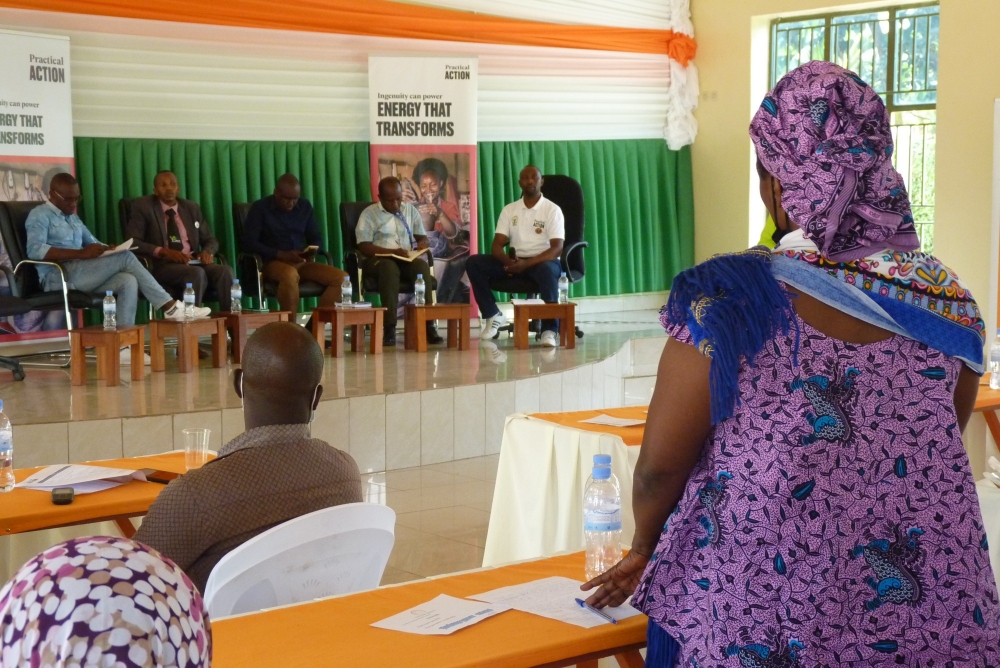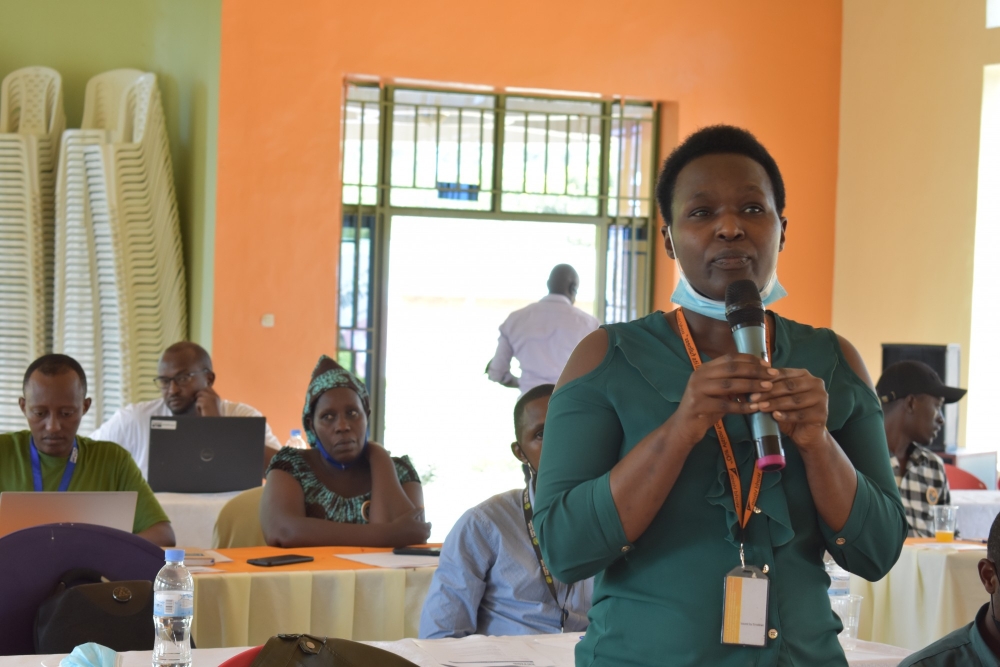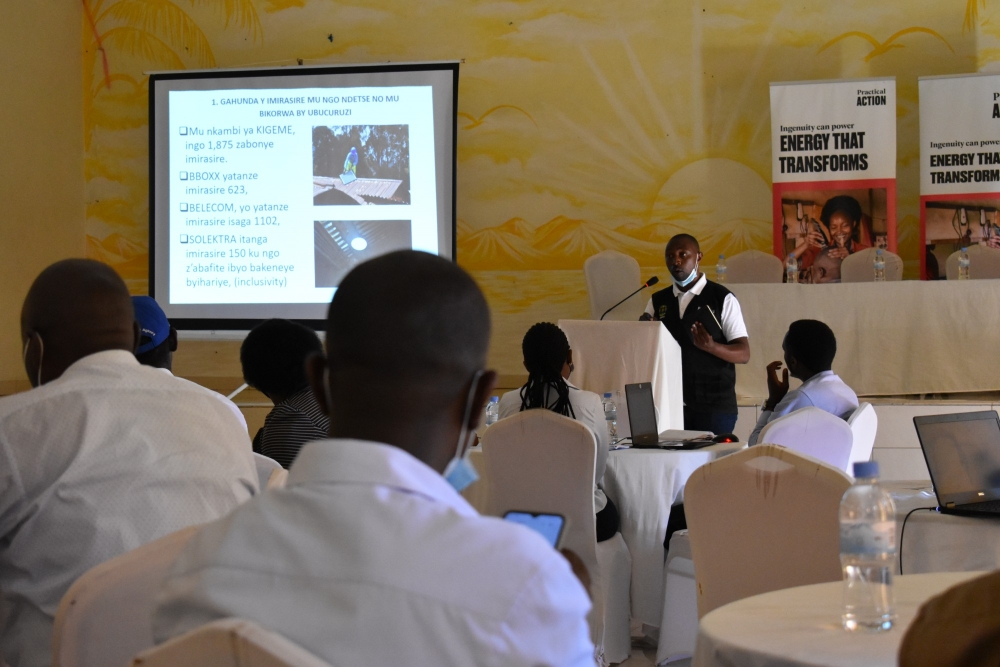In this section
In this sectionSustainability is an integral feature of RE4R’s market-based approach, and whilst it officially finishes in June 2022, the beginning of the end for the project actually started four years ago, right at the start of the project. This approach relies on participation and stakeholder engagement through all stages of programming, and the end of the project was no exception to this. RE4R aimed to strengthen local markets and incentivize long-term, sustainable change within the systems that exist in refugee and remote host communities in Rwanda, rather than using a traditional “free distribution” methodology – in effect changing the systems that deliver energy access for refugees.
In the closing stages of the project in March 2022, we took the opportunity to engage with project stakeholders to mark the final stage of the project, reflect on the project’s impact, and to set out their plans for the future, building on their experiences from RE4R. To do this, we conducted three learning events in Rwanda; two community level events held at each of the camps where RE4R had been working (Nyabiheke and Kigeme) and one national level event in Kigali. The events brought together refugee customers who were using renewable energy appliances in their homes and businesses, private sector company representatives, other NGOs working in the camps, local government staff as well as Practical Action’s Field Coordinators, and UNHCR as the other lead partner on the project.
The events included:
- Updates from Practical Action and UNHCR to summarize the project’s activities and achievements, share reflections on their roles in implementing the project and how energy access provided by project contributed to UNHCR’s protection mandate for refugees in Rwanda
- Refugee testimonies to share their experiences, the impact on their lives and their aspirations for future energy interventions
- Panel sessions with representatives from RE4R’s private sector partners who provided solar home systems, clean cookstoves and solar streetlights to the camps
- Q&A session to dialogue between the stakeholders to pose questions and hear directly from each other
The learning events showcased the importance of refugees being involved throughout the project, acting as co-designers, customers, advisors and evaluators, as Edison, the Kigeme Refugee Committee President said: “We were initially just beneficiaries, but now we are partners”.
We also saw how private sector perceptions had changed since being part of RE4R, as one of the project’s clean cooking suppliers said: “You have to consider the camp as any other market, people live the same way and comply with government rules. [We] used to only serve nationals, but now think it was a missed opportunity to not serve refugees too. Because even though refugees live in camps, they live in the same way as nationals... We don’t want to isolate them but rather to support them.”
Participants raised specific areas of improvement for the future such as:
- Recommendations from refugee participants to the cookstove suppliers for improvements to their stoves and fuels to reduce the amount of smoke produced
- Demand from customers for more capacity in solar home systems, potentially opening the market for a wider range of solar products
- Suggestions for improvements in the availability of supplier staff and physical presence in the camps to improve after sales support
- The requirement for continued awareness raising for clean cooking products in refugee communities
- Expansion to the project’s business centers to accommodate more entrepreneurs who want access to electricity to grow their businesses.
Throughout the events, refugee participants expressed an appetite for more renewable energy programs and further needs in the camps.
A representative of the solar streetlight board, which consists of refugee and host community members and was established to provide ongoing management and upkeep of the lights, said: “Thanks for all you have implemented. There are still other places to implement in, please add more street lights and expand clean cooking efforts. We are part of the streetlight board, you can see we are capable and that we will ensure sustainability.”
The private sector companies also experienced increased demand for their products. Solektra reported that: “People asked for how much money they could buy the street light! Solektra agents had to explain that the lights were for the community. People really wanted them close to their houses. This shows how much people wanted the light.”
Other NGOs working in the camps also recognized the importance and transformative effect of energy access. Caritas said, “There used to be no diversification of businesses, so the business centre has given refugees the opportunity with a variety of appliances a a place to run their business. Caritas will continue to empower people to buy a SHS which helps to increase their quality of life.”
Conclusion and reflections
Facilitating learning events such as these is an important part of stakeholder engagement and active participation has been key to the project’s achievements. This approach helps to cement the role of refugees as partners and customers instead of passive, aid-dependent beneficiaries. It supported the transition away from NGOs being the implementers of energy access interventions towards empowered communities and innovative companies providing products and services with viable business models which can continue to meet future needs. Hearing from refugee community members and private sector company representatives at the same time brought home the need to involve communities from the outset and to build a shared vision and commitment to brighter future.
"We are all together, before we were individuals but we are all working towards a common goal", RE4R Private Sector Supplier.
The blog has been shared by Practical Action. For further information, please contact Louise Rowen.
Last updated: 28/04/2022



